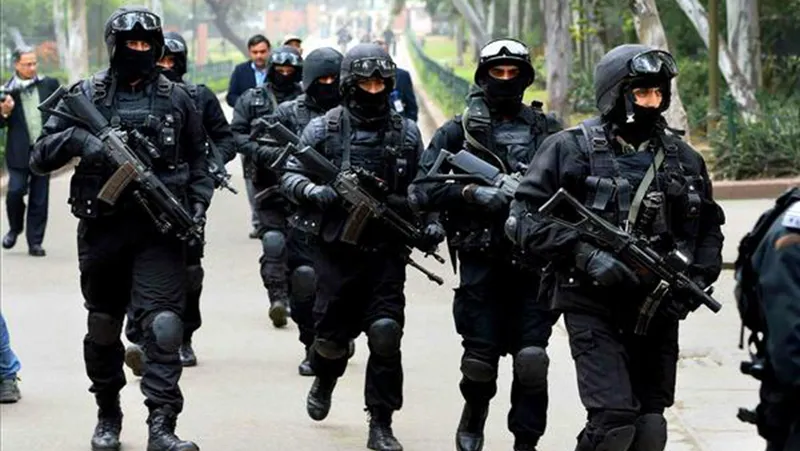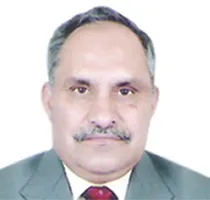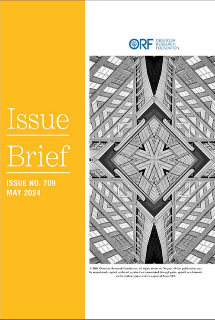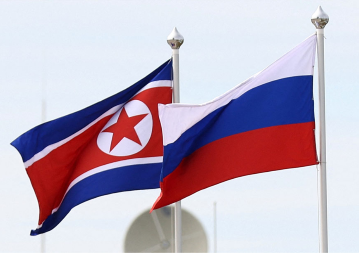The last two counter-terror operations conducted by the National Security Guard, at Mumbai during 26/11 and the recent one at Pathankot, have been marred by serious flaws and controversies. Rather than lack of expertise, though that aspect requires examination, it has been the utter lack of understanding of its potential and capabilities, even within its own senior hierarchy, that has led to its shoddy employment.
The NSG was established in 1986 under the NSG Act (Act 47 of 1986) and is tasked with handling counter-terrorism, anti-kidnapping, anti-sabotage, anti-hijacking and hostage rescue. Interestingly, VIP protection is not within its charter, though that has become its main focus over the years, as it gives added perks to all concerned within the organisation because of direct access to influential people. This has had a debilitating impact on the organisation.
The NSG was a unique and unusual attempt at establishing a specialised force by utilising personnel on deputation from the Army and the Central Armed Police Forces/Central Police Organisations, both with distinctly differing standards of training, discipline, ethics, culture and ethos. Synergy was attempted by keeping its assault elements and their technical and logistic support, the Special Action Groups, Bomb Disposal Teams, Communications and Transportation, completely within the ambit of the Army.
The Special Ranger Groups, manned by personnel from the CAPF and CPO, are responsible for isolation and security of the target area where the SAG would carry out intervention operations so as to ensure no terrorist can either escape from or attempt to get into the area. It is the SRGs that informally provide personnel for VIP protection.
The NSG Headquarters and the Academy are manned by a mix of personnel from all the forces. Aspects pertaining to training and operations are the domain of Army personnel while budgeting and logistics are dealt with by personnel from the CPO/CAPF. The organisation is headed by Director General belonging to the IPS supported by an Inspector General (Operations) from the Army. The Army was required to provide manpower for only a limited period till the CPO/CAPF were able to train sufficient manpower to relieve them. This, however, has not happened till date.
While differing cultural and professional outlooks create their own set of problems, it is the fact that the DG is a Police Officer with limited practical experience in handling counter- terror or irregular warfare operations that is the biggest drawback, since he is no position to provide the Government with specialist advice. The NSG’s inept employment at Pathankot is a perfect example of this aspect. These are institutional issues which can be overcome by modifying organisational hierarchy, but over the years there has been a quantum change in how terrorists operate.
While there may be occasions when they will continue to take hostages with the aim of getting their own people in exchange as was the case during the hijacking of IC814, most terrorist actions aim at causing maximum damage and casualties, as 26/11 and numerous other actions over the years, the world over, have shown. Thus the utility of a centrally-located counter-terror force specialised in anti- hostage/hijacking/ kidnapping tasks is questionable, though maintaining such a capability is certainly still required.
On the other hand, it has become critical to have quick reaction forces. This requires emphasis on speed of reaction rather than numbers or the quality of the first responders, though they certainly need to be better trained and armed than local police. Here local Special Weapons and Tactics Squads can play a crucial role.
This calls for a complete revaluation of the NSG and a elook at our counter-terror strategy and doctrine. With the reported decision to establish a tri-services Special Operations Command, it may be the opportune moment to place the SAGs and their support and logistics element directly under this command. This element could be retained to carry out specialised intervention operations when necessary, though its quantum could be reduced while its reaction capabilities could be speeded up with air transport. The US and the UK have such forces as integral elements of their military.
The NSG could then be given the responsibility of training and handling all VIP protection and SWAT elements throughout the country. This will require an increase in the number of SRGs which can coordinate with police forces. It will ensure that a single entity is responsible for responding to any terrorist attack. It will also ensure standardised training, tactics, organisational and equipment profiles and also help in ensuring centralised procurement of specialised weapons and equipment — a major problem at the present time.
This article originally appeared in The Pioneer.
The views expressed above belong to the author(s). ORF research and analyses now available on Telegram! Click here to access our curated content — blogs, longforms and interviews.




 PREV
PREV


